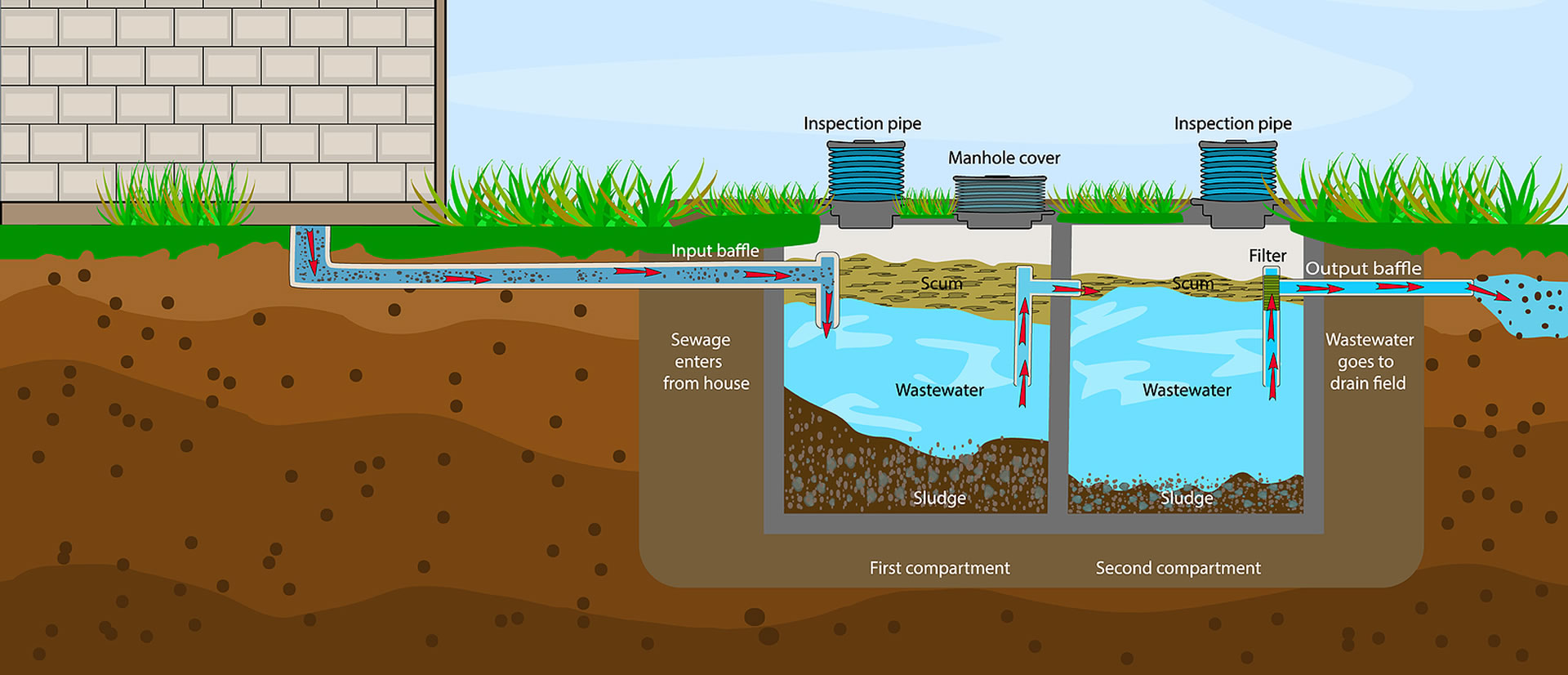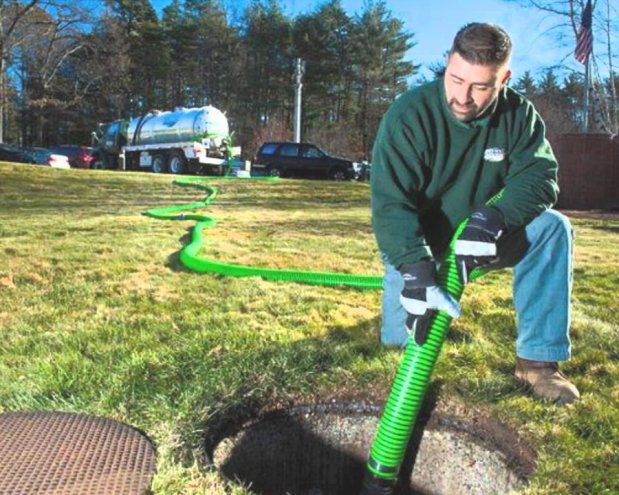
07
Septic tanks can hold a lot of waste, but they do have a limited capacity. An average septic tank is designed to hold about 750 to 1,250 gallons of wastewater. For a septic tank to function properly, it should never be completely full. If the effluent rises to abnormally high levels, it may block the outlet pipe and even overflow onto your yard.
Here at Charlotte Septic Pros, we are a reputable septic company specializing in septic tank pumping, septic tank repair, and septic tank installation. Let’s walk you through some of the causes of high effluent levels in septic tanks and the possible solutions.
Blockages in the outlet pipe can restrict the flow of effluent from the septic tank into the drain field. The outlet pipe leading to the drainfield can get blocked as a result of tree root intrusion, accumulation of solids, pipe damage, and other causes. When the outlet pipe is blocked, the effluent has nowhere to go but to build up in the septic tank and even back up into your drains.
Solution
Have a professional septic technician inspect and clear the outlet pipe to ensure unobstructed effluent flow. Regular maintenance and inspection can help prevent outlet pipe blockages.
Infrequent or overdue septic tank pumping can lead to excessive sludge buildup and abnormally high effluent levels in the tank. A septic tank should be pumped every 2-5 years, depending on the amount of solids in the tank, the size of the tank, and other factors. If you delay pumping out your septic tank, you’ll end up with an overflowing tank.
Solution
Schedule regular septic tank pumping based on the recommended frequency for your tank size and household usage. This prevents sludge accumulation and maintains proper system function.
A sudden increase in water usage, such as from hosting guests or a new appliance, can cause effluent levels to rise.
Solution
One of the measures you can take to keep your septic tank in tip-top condition is to be mindful of water usage during peak times. Space out laundry and other water-intensive activities. Consider upgrading to water-efficient appliances and fixtures to reduce the load on the septic system.
Heavy rainfall or flooding can saturate the drain field and cause effluent to flow back into the septic tank. Backflooding might also occur when the drainfield is compacted or clogged.
Solution
Properly maintain and grade the drain field to prevent water accumulation. Consider diverting rainwater away from the drain field through appropriate landscaping measures.
A malfunctioning or failing drain field may not adequately absorb and disperse effluent. When the drainfield is unable to absorb and disperse wastewater, the effluent in the septic tank will have nowhere to go but build up to abnormally high levels.
Solution
If your drainfield is exhibiting signs of disrepair, have a professional septic company assess the drain field's condition. Drainfield repair or replacement may be necessary to restore proper drainage.
Is your septic tank’s outlet pipe blocked? Is it time to pump out your septic tank? Has your drainfield malfunctioned and it’s causing backflooding? The experts at Charlotte Septic Pros are here to help. Charlotte Septic Pros is the septic company you can count on for all of your septic needs. Whether you’re in need of septic tank pumping, septic tank repair, or septic tank installation, the professional septic technicians at Charlotte Septic Pros have the expertise to provide you with reliable services.

12
A single slow drain in your home can feel like a minor inconvenience. Maybe the sink takes a little longer…
Read more
05
Are Slow Drains a Septic Issue or Just a Clog? Slow drains are one of those household problems that start…
Read more
02
What Septic Service Techs See That Homeowners Miss Most homeowners only think about their septic system when something goes wrong.…
Read more
21
Simple Habits That Protect Your Septic System A well-functioning septic system does its job quietly, but the moment something goes…
Read more
14
Pump Now or Pay Later: The Real Cost of Skipping Maintenance A properly functioning septic system is easy to forget…
Read more
11
Why Your Septic System Always Acts Up at the Worst Time Homeowners often feel that septic problems strike at the…
Read more
04
Early Warning Signs Your Septic Tank Needs Pumping For homeowners who rely on a septic system, routine maintenance is not…
Read more
29
Why Does My Septic System Smell Fine One Day and Terrible the Next? If you own a home with a…
Read more
19
Is Your Septic System Overdue? Simple Home Checks You Can Do Today For many homeowners, the septic system is a…
Read more
13
5 Signs Your Septic Tank Is Overdue for Pumping Your septic system works quietly behind the scenes, managing wastewater from…
Read more